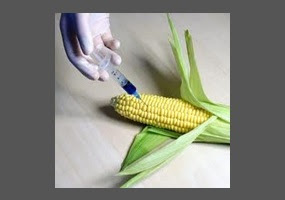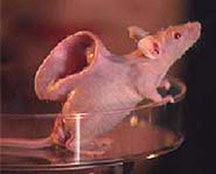A group of scientists call for a Moratorium on Gene Editing
The International Society for Stem Cell Research and the Doudna group calls for public discussion, but is also working to develop some more formal process, such as an international meeting convened by the National Academy of Sciences, to establish guidelines for human use of the genome-editing technique. A paper published in Science calls for a moratorium on any clinical application.
DOI: 10.1126/science.aab1028. PERSPECTIVE BIOTECHNOLOGY
A prudent path forward for genomic engineering and germline gene modification
David Baltimore1, Paul Berg2, Michael Botchan3,4, Dana Carroll5, R. Alta Charo6, George Church7, Jacob E. Corn4, George Q. Daley8,9, Jennifer A. Doudna4,10,*, Marsha Fenner4, Henry T. Greely11, Martin Jinek12, G. Steven Martin13, Edward Penhoet14, Jennifer Puck15, Samuel H. Sternberg16, Jonathan S. Weissman4,17, Keith R. Yamamoto4,18
Some in the science community urge us to proceed considerately w/ caution. Researchers and the public need to have considerate debate raising important ethical, safety, regulatory & public policy concerns altering genes. Though highly efficient, the technique occasionally cuts the genome at unintended sites. The chief problem has always been one of accuracy, of editing the DNA at precisely the intended site, since any off-target change could be lethal.
Dr. Baltimore said. “I personally think we are just not smart enough — and won’t be for a very long time — to feel comfortable about the consequences of changing heredity, even in a single individual.”
I would also suggest that each state's medical and research community set-up a Center for BioEthics to raise these important issues. Does anyone know the long-term implications of altering corns' genes and sold to farmers by Genetically Modified Organism (GMO0) companies?
All the best,
Dr. Anderson
The International Society for Stem Cell Research and the Doudna group calls for public discussion, but is also working to develop some more formal process, such as an international meeting convened by the National Academy of Sciences, to establish guidelines for human use of the genome-editing technique. A paper published in Science calls for a moratorium on any clinical application.
DOI: 10.1126/science.aab1028. PERSPECTIVE BIOTECHNOLOGY
A prudent path forward for genomic engineering and germline gene modification
David Baltimore1, Paul Berg2, Michael Botchan3,4, Dana Carroll5, R. Alta Charo6, George Church7, Jacob E. Corn4, George Q. Daley8,9, Jennifer A. Doudna4,10,*, Marsha Fenner4, Henry T. Greely11, Martin Jinek12, G. Steven Martin13, Edward Penhoet14, Jennifer Puck15, Samuel H. Sternberg16, Jonathan S. Weissman4,17, Keith R. Yamamoto4,18
Some in the science community urge us to proceed considerately w/ caution. Researchers and the public need to have considerate debate raising important ethical, safety, regulatory & public policy concerns altering genes. Though highly efficient, the technique occasionally cuts the genome at unintended sites. The chief problem has always been one of accuracy, of editing the DNA at precisely the intended site, since any off-target change could be lethal.
Dr. Baltimore said. “I personally think we are just not smart enough — and won’t be for a very long time — to feel comfortable about the consequences of changing heredity, even in a single individual.”
I would also suggest that each state's medical and research community set-up a Center for BioEthics to raise these important issues. Does anyone know the long-term implications of altering corns' genes and sold to farmers by Genetically Modified Organism (GMO0) companies?
All the best,
Dr. Anderson








